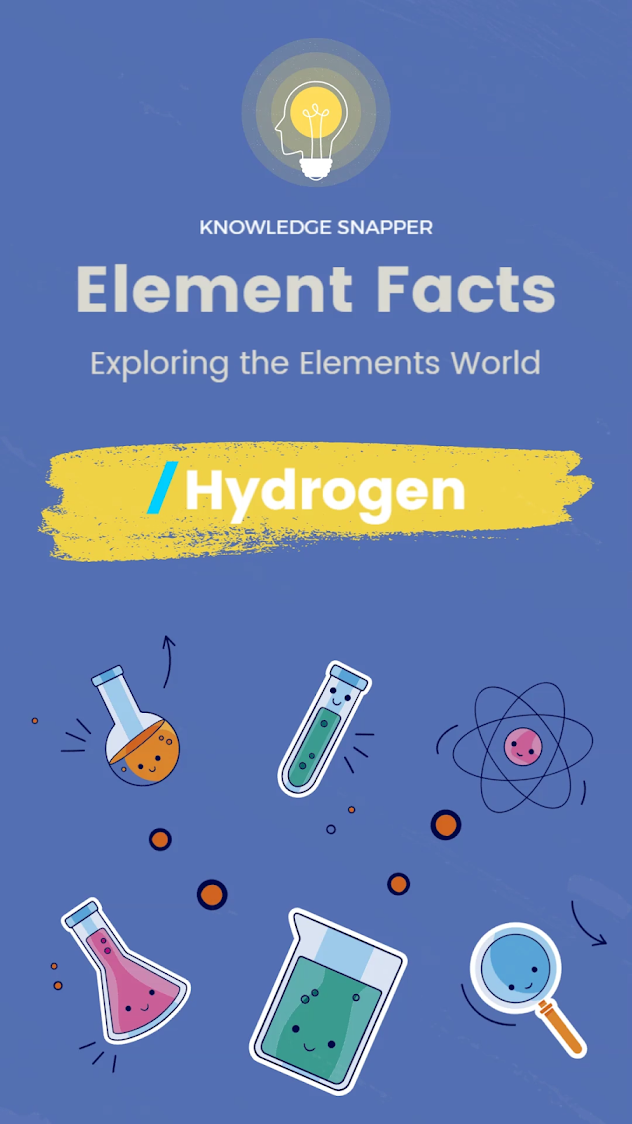Exploring the Wonders of Hydrogen: Five Intriguing Facts
Did you know that the most abundant element in the universe is also one of the smallest? Prepare to be amazed by these five fascinating facts about hydrogen.
1. Hydrogen: The Simplest and Lightest Element
Hydrogen holds the title of being the simplest and lightest element. It consists of just one proton and one electron, making it unique among all the elements on the periodic table. It is so light that a single cubic meter of hydrogen gas at standard conditions contains over five billion billion hydrogen atoms.
2. The Star Fuel: Hydrogen's Role in Nuclear Fusion
Hydrogen is the primary fuel for stars, including our very own sun. In the heart of these celestial giants, nuclear fusion occurs, turning hydrogen into helium and releasing vast amounts of energy in the process.
A Glimpse into Stellar Energy
In the core of the sun, temperatures soar to millions of degrees. Here’s where hydrogen nuclei collide and fuse, creating helium and a massive burst of energy that lights up our solar system. The process releases energy that radiates out and warms our planet, driving life and weather systems.
"Hydrogen is not only the source of life-sustaining light but also a fundamental ingredient in the cosmic recipe of the universe." 🌟
3. The Three Faces of Hydrogen: Protium, Deuterium, and Tritium
Hydrogen can exist in three different forms called isotopes. These are:
Protium: The most common form, with just one proton.
Deuterium: Has one proton and one neutron.
Tritium: Contains one proton and two neutrons.
What Makes Each Isotope Unique?
Protium is abundant and has no neutrons. It is the basic form of hydrogen and constitutes about 99.98% of the hydrogen found in nature.
Deuterium is rare but stable, used in nuclear reactors and scientific applications. It is heavier and is used in heavy water reactors and as a tracer in various chemical experiments.
Tritium is radioactive and used in specialized fields like nuclear fusion research. It is produced in small quantities in the atmosphere and can be utilized in hydrogen bombs and as a radioactive tracer.
4. Clean Energy Source: The Potential of Hydrogen
One of the most exciting aspects of hydrogen is its potential as a clean energy source. When hydrogen burns, it combines with oxygen to produce only water as a byproduct, offering a pollution-free energy solution.
A Sustainable Future with Hydrogen
Imagine a future where our primary source of energy doesn't pollute the atmosphere but instead only releases water. Hydrogen fuel cells, for instance, are already being used to power cars, buses, and even homes. Scientists are developing more efficient methods for producing and storing hydrogen, which could revolutionize our approach to energy consumption.
5. Hydrogen on Earth: Found in Compounds
On Earth, hydrogen is not found freely floating around but is most commonly found in compounds like water (H₂O) and hydrocarbons.
Where Do We Find Hydrogen?
Water: Every molecule of water is made up of two hydrogen atoms bonded to one oxygen atom. Water is essential for all known forms of life and is the most significant source of hydrogen on our planet.
Hydrocarbons: Found in fossil fuels, these are compounds of hydrogen and carbon. Hydrocarbons serve as the primary energy source for our modern society through combustion and refining processes.
Curiosity Sparked?
If you find these facts intriguing, stay tuned! Discover more fascinating knowledge and facts that will broaden your horizons and spark your curiosity.
Come back tomorrow for more fascinating knowledge!

.jpg)

.png)
Comments
Post a Comment